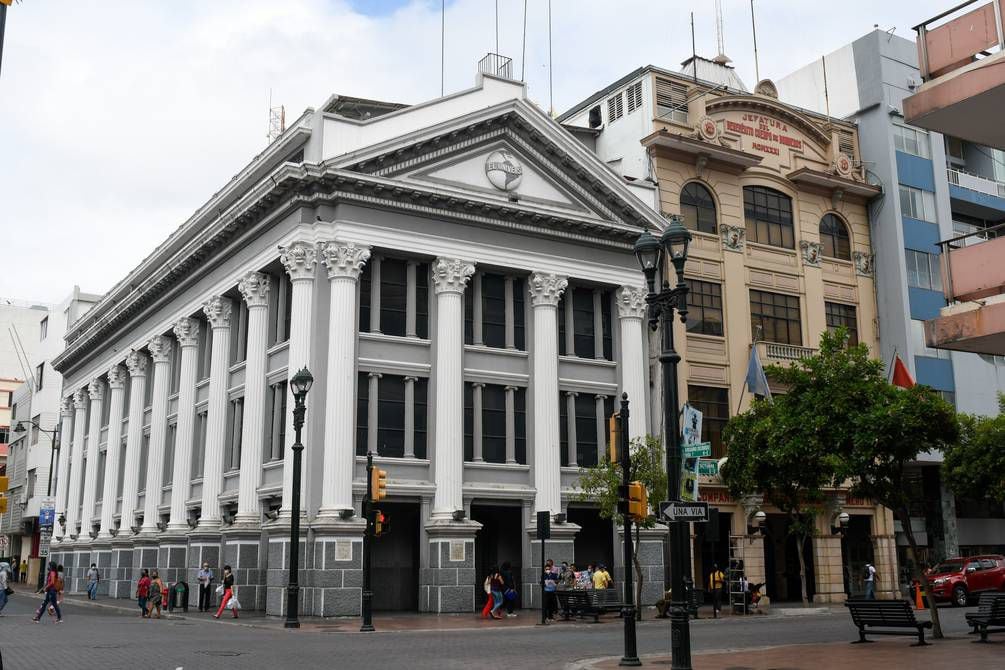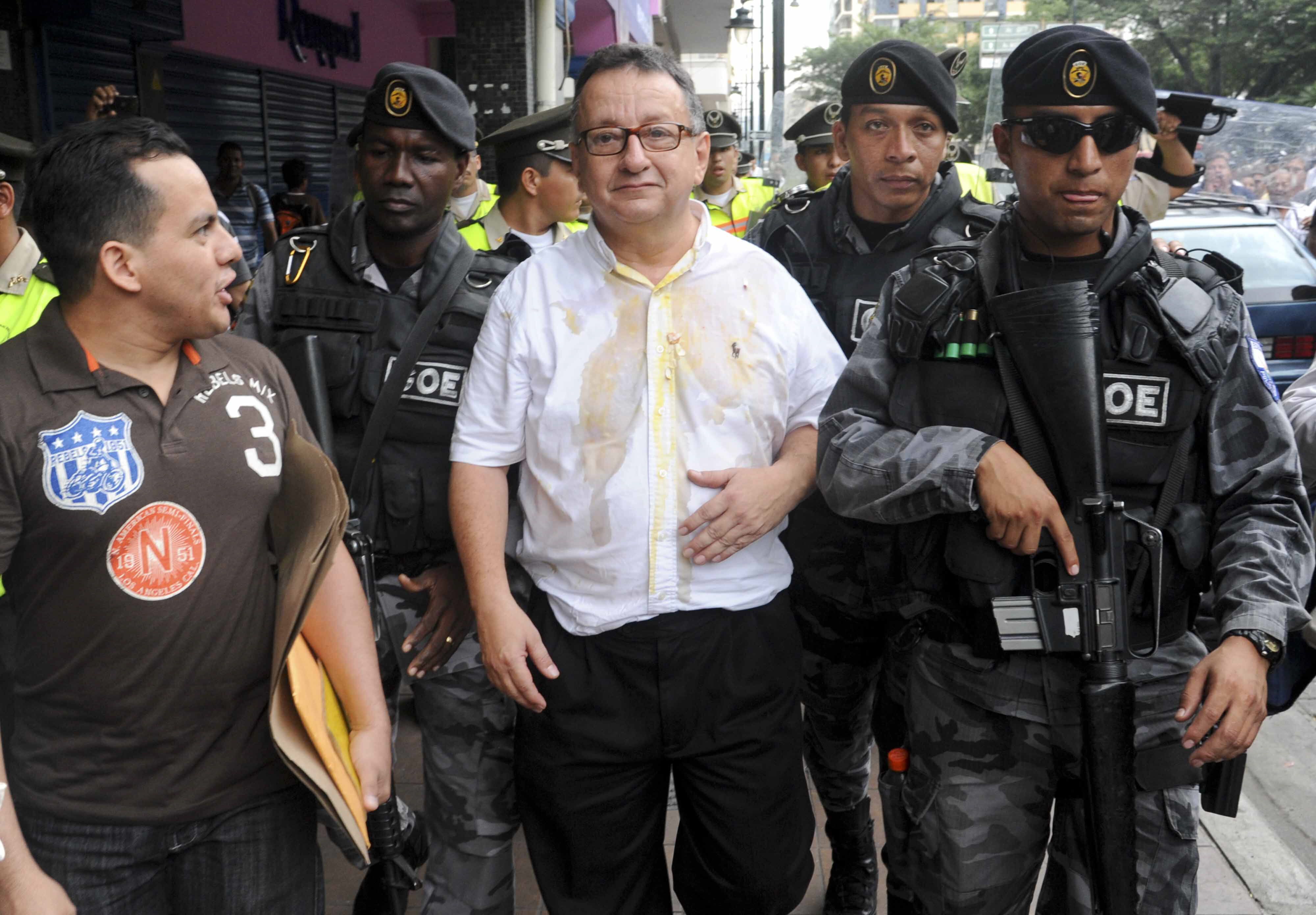
After being exiled for a decade because of former President Rafael Correa's persecution of him, journalist Emilio Palacio returned to Ecuador to be decorated for his fight for freedom of expression by current President Guillermo Lasso. Palacio, who was the former editor of Opinion of Diario El Universo, had to face a sentence with the directors of the media that, in addition to sending him to jail, required the payment of USD 40 million to the former president.
Although Correa chose to pardon those sentenced, the persecution against Palacio led him to take refuge in the United States. Correa argued that Palacio slandered him in an opinion column published on February 6, 2011, which referred to the events of the police revolt of September 30, 2010.
Last Wednesday, Palacio received the National Order of Merit in the Officer's Degree. “I am pleased to present this award, in recognition of his career as a journalist and citizen, who risked his own welfare and that of his family, in defense of freedom of the press and democracy (...). This award also symbolizes our recognition of all that journalism that always stood up,” Lasso said at the event. In addition, the Presidency acknowledged in a statement that Emilio Palacio “was affected by the infamous persecution of a government, which offended and attacked journalists and the media.”
Palacio, who was emotional and grateful for the distinction, emphasized that during Rafael Correa's government several people were persecuted for having a different opinion of the regime: “It was not the fight of a single person. If we manage to defend freedom of expression, it is because there were very brave people, who suffered in the same way,” he said. Upon receiving the award, Palacio said: “I take this medal, which I receive with such pride, as a medal for journalism, which for more than 10 years fought to defend a sacred principle: freedom of expression, which is the only tool we have to defend our rights. It is the right that allows us to defend our rights.”

Lasso also showed the contrast between the persecution against Palacio and the distinction he gave to the journalist: “Time puts everything in its place. And in this very room where Emilio was attacked and humiliated, today the Government of the Encuentro pays him a well-deserved tribute. From here, the media, their owners, managers and workers were incessantly intimidated. Today I am pleased to say that they are welcomed in this Palace with total openness and transparency,” he said.
After the persecution caused by Rafael Corre a, the journalist went into exile in the United States. According to the newspaper El Universo, for a decade Palacio has not practiced his profession and has lived under the shelter of his eldest son and that of his wife, in addition to the help of the US Government for asylees, who provided him with food and health insurance.
The case of El Universo as a sign of the Correista persecution
Although former President Rafael Correa, in February 2012, decided to grant pardon of the conviction and the fine that the convicts in the El Universo case had to pay him, the case was transferred to international bodies. In December 2021, the Inter-American Court of Human Rights (IACHR) ruled in favor of Emilio Palacio and the directors Nicolás, César and Carlos Pérez of the newspaper El Universo. The Court declared the international responsibility of the State of Ecuador for violations of the human rights of those mentioned in the exercise of journalism and ordered several measures of comprehensive reparation.
The IACHR concluded that in the column “No to lies”, published on February 6, 2011, which analyzed the consequences of September 30, 2010, when the police mutiny occurred, the human right to freedom of expression was exercised as a matter of public interest, so it is in the general interest and therefore “enjoyed of special protection in view of its importance in the democratic debate”.

Consequently, he added, the sentence obtained by former President Correa, and the civil sanctions imposed on the occasion of that conviction constituted a violation of the freedom of expression of the accused parties.
The Court also ordered that the State compensate Palacio, who should receive USD 250,000 for material damage and USD 30,000 for immaterial damage. The other victims must receive $60,000 in total for intangible damage and reimbursement of costs and expenses totaling USD 40,000.
KEEP READING:
Últimas Noticias
Debanhi Escobar: they secured the motel where she was found lifeless in a cistern

The oldest person in the world died at the age of 119

Macabre find in CDMX: they left a body bagged and tied in a taxi
The eagles of America will face Manchester City in a duel of legends. Here are the details

Why is it good to bring dogs out to know the world when they are puppies




